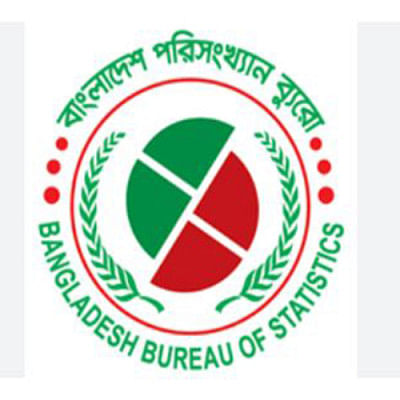
Out of 14 types of statistics gathered by the Bangladesh Bureau of Statistics (BBS), eight are thought to be outdated by at least 50 per cent of people who use the data and participated in a new survey of the state-run agency.
The eight types of data are on agriculture, foreign trade, industry, labour, population, demographic and vital statistics; health, gender and education.
Some 69.23 per cent users, the highest percentage of respondents, think the foreign trade statistics are outdated while only 24.24 per cent, the lowest, think the same for national accounts.
The national accounts data, which is used to produce gross domestic product (GDP) and consumer price index (CPI), is frequently updated by the BBS, according to 54.41 per cent of the respondents.
Moreover, around two-thirds expect more statistical data, according to the “User Satisfaction Survey 2022” made public through a programme on the BBS headquarters in Dhaka yesterday.
Besides, the second most widespread reason for user dissatisfaction was that the “data is not useful”, said the survey.
Some 45.83 per cent of the users found the price statistics produced by the BBS to be least useful.
The data being outdated and not useful were two of five reasons which users stated for being dissatisfied.
The survey data was collected over two weeks between March 27 and April 22 in 2022.
Out of 609 people, 580 responded, including those from government organisations, financial institutions, business communities, education sector, development partners and mass media, said Md Dilder Hossain, project director of the survey.
The BBS should specifically state when it would publish which data and ensure timeliness, said Ahsan H Mansur, executive director of the Policy Research Institute of Bangladesh, at the event.
“The BBS should…at least put in its best effort, which helps to ensure credibility,” he said.
The BBS should try to come up with new types of data every year which will help policymaker a lot, said the economist.
“It is high time to publish the GDP data,” he said, adding, “If India can do it, why not the BBS?”
However, Mansur also underscored the importance of the BBS, as a national statistical agency, staying independent, free from any type of influence.
Many statistical agencies in the world are run under their parliaments, he said.
“It is not a matter of dissatisfaction, it is just inefficiency issues,” said Md Matiur Rahman, director general of the BBS, on the users’ expectations for more data.
The BBS conducted this survey to realise its internal strength and understand where this agency has reached since being formed in 1974, he said.
“Through this survey, now we can understand what we should do in the future,” he added.
Acknowledging the various limitations, the BBS director vowed to fast release data, including labour force surveys on a quarterly basis.
Echoing him, Shahnaz Arefin, secretary to the Statistics and Informatics Division, blamed a lack of skilled manpower and budgetary limitations.
Speaking as chief guest, Shamsul Alam, state minister for planning, welcomed the “self-analysis”.
However, he acknowledged that there were inaccuracies in the data of the BBS. “However, overall, it is reliable,” he insisted.
There is a general mistrust of the inflation data, especially if it falls. “The prices always fluctuate. When eggs become costlier, other products like potatoes may become cheaper,” he said.
Besides, the state minister suggested that the BBS improve its website to make it more user friendly as 89 per cent of the respondents still use it.
Source: The Daily Star

